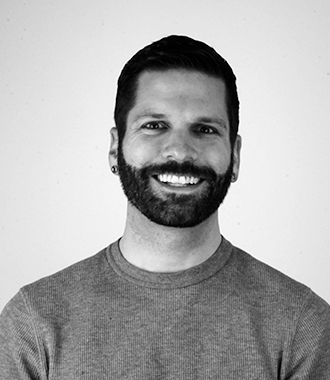Dr Christopher (Chris) Carignan
Research Program: Speech and Language 
Biography
Chris is an experimental phonetician and phonologist... but what does that actually mean? It means that he uses a variety of empirical methods and tools to investigate the physical and acoustic characteristics of the production of speech sounds in many different languages and dialects, as well as how these features help explain sound patterns that we observe both between languages as well as within a given language as it develops and changes over time.
In his research, Chris focuses on the relation between the physical articulatory gestures of speech and the corresponding acoustic output, using state-of-the-art acoustic, kinematic, imaging, and aerodynamic tools and methods to study how the shape of a speaker's vocal tract affects what their language actually sounds like when they speak. He is especially interested in vowel nasalization and other many-to-one phenomena of natural speech, where the opportunity for listeners' misperception of the articulatory causes of acoustic changes increases the likelihood of the inception of sound change.
Chris received his BA from Western Washington University with a double major in Linguistics and French, graduating magna cum laude with honours in Linguistics in 2005. He received both his MA and PhD from University of Illinois at Urbana-Champaign, where he worked with Professors Ryan Shosted (Linguistics) and Zsuzsanna Fagyal (French) on his NSF-awarded dissertation research on the differences in oral tract shape between oral and nasal vowels in European and Canadian French. During 2013-2015, he worked as a postdoctoral research scholar with Professors Jeff Mielke and Robin Dodsworth at North Carolina State University.
In 2015, Chris joined the Speech and Language team at the MARCS Institute, where he employed innovative tools, methods, and analyses in order to study diverse phonetic and phonological phenomena of human languages.
Chris is a Scientific staff member at the Institute of Phonetics and Speech Processing, Ludwig-Maximilians-Universität, Munch, Germany.
Research Interests
- Speaker-specific strategies for managing the production of speech sounds for which various different configurations of the vocal tract yield similar acoustic outputs.Co-variance of nasalization and oral articulatory configuration in the production of phonetic and phonemic vowel nasalization in typologically diverse languages and dialects.
- Differences in oral articulatory characteristics of nasal and nasalized vowels in speech versus singing.
- Articulatory and acoustic characteristics of tensing of the /æ/ vowel in different phonetic contexts in distinct varieties of North American English.The interface of production and perception in the imitation of phonemic vowel nasalization in French by monolingual speakers of English, a language which has extensive phonetic vowel nasalization but not (as of yet) phonemic vowel nasalization.
- Synchronic and diachronic characteristics of phonological distinction of the 'cot'/'caught' vowel in Raleigh, North Carolina.
- Development and expansion of statistical models and imaging processing techniques for large-scale data analysis related to imaging the shape of the vocal tract.
Qualifications and Honours
- PhD, University of Illinois at Urbana-Champaign, 2013MA, University of Illinois at Urbana-Champaign, 2008
- BA, Western Washington University, magna cum laude with honours in Linguistics, 2005
- National Science Foundation Graduate Research Improvement Grant (1121780), "Doctoral Dissertation Research: Oral articulation of French nasal vowels." PI: Ryan Shosted, Co-PIs: Christopher Carignan, Zsuzsanna Fagyal, $12 000, 2011–2013University of Illinois Graduate College Dissertation Completion Fellowship, "Oral Articulation of French Nasal Vowels.", $20 000, 2012–2013
Publications
For a full listing of my publications, please see my Western Sydney University profile page.(opens in a new window)



